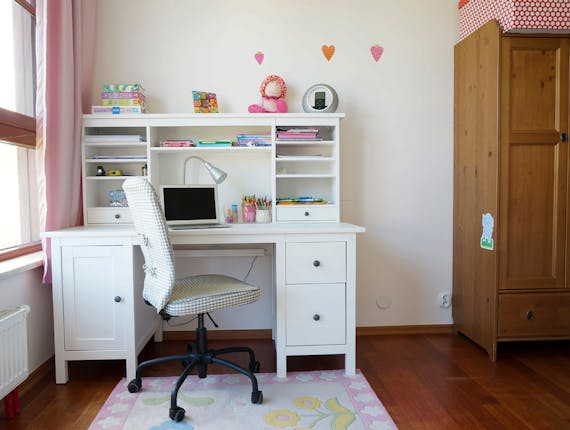12 Crucial Tips for the 2025 SATs
Table of Contents
Do you have a child coming to the end of their primary school journey? If so, you have probably been thinking about the upcoming KS1 and KS2 SATs and wondering how you can support your child to achieve.
This article offers 12 top tips for SATs success in the 2025 SATs from a Year 6 teacher, parent, private tutor, and revision guide author.
1. Start sooner rather than later
Don't leave it too late to start a revision routine. Trying to start too late and rushing through everything will likely leave your child flustered and frustrated. The earlier you start, the more time you will have, and the more confident and relaxed your child will be. Aim to begin your revision routine no later than the February half term.

2. Create a focused learning space
Modern life is full of distractions. Creating a relaxed and focused learning space, away from mobile phones, televisions, and noisy siblings, will not only help them avoid these troublesome distractions but will help them get into the mindset of learning. Involve your child in creating this space, discuss what resources they may need, and ensure that everything is within easy reach. It is surprising how much revision time can be wasted by looking all over the house for a pen and paper!

3. Read, read, and read some more!
Reading is one of the most important things you and your child can do to support SATs success. Allocate time for reading daily and encourage your child to read a diverse range of books. If they have trouble reading trickier books themselves, read to them, ask questions, and explore any unfamiliar words together. Reading challenging books exposes children to vocabulary they may not encounter in everyday life. A more comprehensive vocabulary will improve reading, writing, and spelling skills, which are all assessed during the SATs.

4. Create a realistic revision timetable
In addition, to allocating time for reading, it is a good idea to create a revision timetable for other areas of the curriculum. Make sure you are realistic with the amount of time you set for each period, and be sure to cover a range of subjects and topics. Some children will benefit from more short sharp bursts of revision, while others may prefer to spend longer on fewer occasions.

5. Target areas of 'weakness'
It is tempting for your child to try and focus their revision on areas of the curriculum they like or are 'good at'. However, they will benefit more from spending time on subjects they have less confidence in. Confidence is critical when it comes to the SATs, and the more time your child spends on a topic, the more confident they will be. As well as asking your child which areas they feel they should focus on, it is a good idea to talk to their class teacher. It may be that they have very different opinions when it comes to areas of strength and weakness.
6. Use revision tools
Nowadays, there a 1000s of different tools available to support SATs revision. Most schools go through plenty of past SATs papers with children in preparation for the SATs as this offers children valuable experience of the paper styles. At home, you can use revision guides, workbooks, online learning tools and even videos as an alternative approach. Revision guides, online resources and videos often demonstrate strategies for answering questions accurately and effectively rather than simply practising questions which can be helpful for those trickier areas of the curriculum.

7. Be creative
While worksheets, practice papers and flash cards have their place when it comes to preparing for the SATs, it is also a good idea to be creative with how you revise. Playing games such as times tables pairs and hangman with spellings will help your child practice essential skills but won't feel like 'revision'. There are thousands of resources available online to help your child revise all sorts of topics, so don't be afraid to add some 'fun' to your revision sessions.
To get you started (and for a bit of light relief) why not download our Free SATs Crossword or SATs Wordsearch?
8. Practise working against the clock
The KS2 SATs are timed exams which can be intimidating for children who are not used to them. When you ask your child to complete a task, give them a time limit. Explain the task clearly, look for progress markers in the task, i.e., where is the halfway point, and explain to your child that they should aim to be halfway through the task when they are halfway through the allocated time.

9. Offer rewards and motivation
Preparing for SATs can be demanding for children, and your child may need some motivation. Rewarding your child for the effort they put in, whether with a trip to the cinema, a new book or treating them to their favourite takeaway, can help keep them motivated. Remember that it is important to offer rewards for effort, not just for results.
10. Establish good routines
In addition to effective revision, having a good routine at home is vital to SATs success, particularly in the days and weeks running up to the SATs. Offering healthy meals and snacks, setting a regular and suitable bedtime, and building in time for regular exercise will all help create a routine which will support success.
11. Build in balance
When setting an effective timetable and routine for your child, it is crucial to build in some 'downtime'. The SATs can be a very demanding time for children, and while it is important to revise, eat and sleep well, it is also vital that you allow your child time to simply be a child and choose what they want to do. Allowing time for playing games, meeting friends, and simply enjoying themselves will support their mental well-being and give them space to breathe.
12. Be positive, patient and understanding
The SATs are important, but so is your child. The extra stress or pressure of the SATs, and all that comes before them, can take its toll on children. More than anything, it is vital to remember that your child is more than a score! Being patient, positive and understanding with your child throughout the process will ease the pressure and help them approach the SATs confidently and positively.

Remember, SATs shouldn't be considered a bad thing! In fact, there are plenty of good things about SATs. They're an opportunity for your child to show just how special they are.
